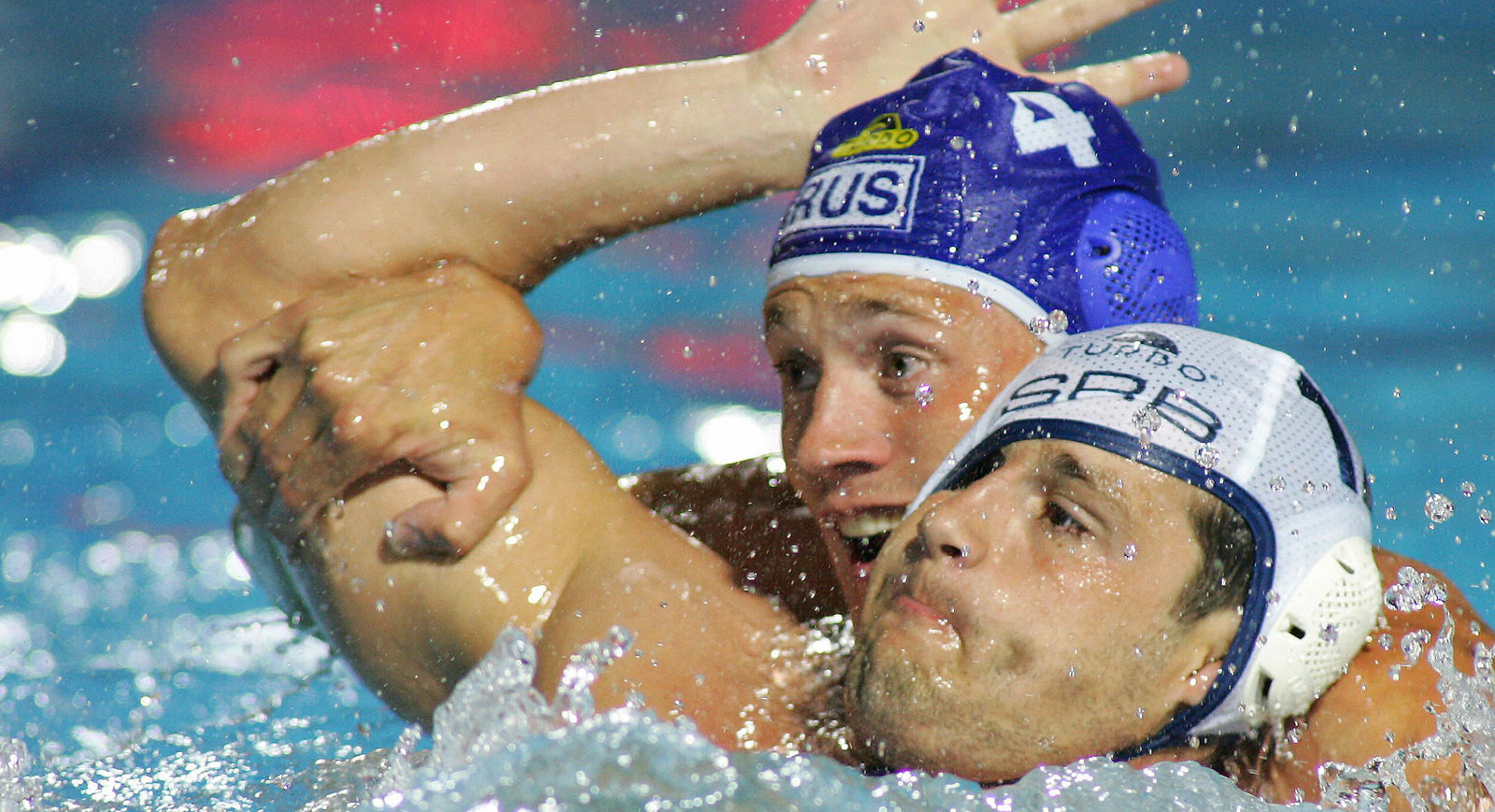Your Cart is Empty
Seems to be good quality. My daughter loved it.
My granddaughter loves her scwpc suit!

December 02, 2024 6 min read
Zac is the writer of the popular water polo blog Pool Reflections. Subscribe to his Substack to get access to all of his blogs.
Spartan warriors were amongst some of the most feared fighting forces in antiquity, earning their reputations on the field of battle for being tenacious, gritty, and dominant. Spartan warriors were renowned for their rigorous military training and discipline, which began at an early age.
Their reputation for fearlessness and willingness to fight to the death was cemented by events like the Battle of Thermopylae (the basis for the movie 300), where a small Spartan force held off a much larger Persian army.
They were known for their utilization of psychological warfare (including war cries, synchronized movement, and crimson & gold uniforms) and their ruthless efficiency in battle. The Spartan reputation for brutality contributed to the fear they inspired in their enemies. The warrior culture from whence they came emphasized discipline, confidence in their training, and stratified leadership, which made their armies more cohesive, flexible, and effective on the battlefield compared to many of their Greek contemporaries.
Their tactical advantage stemmed from the flexibility of leadership and ability to break into smaller, more maneuverable units, which emphasized the strengths imbued by their training as individuals.
Their culture was the engine and the gasoline, and their tactics were the turbo-charger.
I released some of the plays that we ran throughout the course of the high school season. The reason why I don’t care much about opposing team’s seeing the plays that I run, is:
1) I build plays based on each team’s strengths, so my playbook is constantly in flux.
2) The cultural make-up of your team is more important than tactics when it comes to success in team sport.
Tactics are an add-on to great culture. If your team is composed of individuals with a high degree of discipline, who are adaptable, and compete to get better every day, you are dangerous. Tactics simply inform team movements lean into each player’s individual strengths.
You may have created the most intricate tactical playbook ever assembled, crafted with the precision of a Swiss watchmaker, but your team’s culture is as soggy as yesterday’s towel, that very playbook might as well be used to dry off after practice.
Tactical Mirage: Tactics can win you a game or two, or be utilized to score a goal in a crucial moment, but without a solid culture, it’s like building a sandcastle at high tide—impressive in the moment, then washed away with rising tides of greater and greater competition.
Cultural Bedrock: A strong team culture is the bedrock upon which dynasties are built. Ask any member of the multi-gold winning USA Women's Water Polo Team, NCAA championship team’s with multiple rings, or members of FTC and Pro Recco. They have dominated competitions by fostering an environment of trust, empowerment, consistency, and disciplined self and organizational improvement.
You need to defend the culture of your team daily like it’s a life or death scenario. Culture similar to trust. It’s a tough identity to build and it’s easily broken. It’s the invisible force that turns a group of individuals into an unstoppable titan; it only exists when consistent, high-standards are upheld. The whole team needs to lean into growth, not comfort and accountability, never malaise.
Trust Falls and Water Balls: Trust is built through shared struggles and triumphs. If your coach is continually asking your teammates to be at practice, to be on time, to try hard in conditioning - your program is doomed to achieve ordinary results. If the coach is there reminding the team every once in a while, the culture is above-average. If players are constantly holding each other to account, that is a championship winning formula.
Empowerment Over Ego: As Maggie Steffens of the U.S. Women’s Team puts it, success comes from empowering players to take responsibility for themselves and their teammates. It’s about being genuine and striving to improve both individually and collectively. Its about making your teammates better at every turn, even if that might affect your own playing time.
Leadership in water polo isn’t about barking orders from the pool deck; it’s about creating an environment where everyone feels valued and capable of leading. If a coach is a general setting the standards (championship or otherwise), the players are sergeants and captains, maintaining and enforcing the standards.
Diverse Leadership: From captains to social leaders, every role is critical. Recognizing different leadership styles within your team helps build a cohesive unit where everyone knows their strengths and leans into them. Weaknesses are attacked with ferocity.
Identity Over Buzzwords: Focus on building a team identity rather than getting lost in buzzwords like "trust" and "family." Clear expectations lead to a shared sense of purpose and belonging.
Team culture screams as soon as you walk onto a pool deck. All you have to do is watch a practice or two to understand what a team is prepared for and what they expect of themselves.
Are they valuing each moment of the practice and maximizing each rep they take?
How serious is their warm-up? Is it a social gathering or are they improving on individual fundamentals during the warm-up portion?
Do they chase down 50/50 balls with max effort or is it a Sunday stroll?
Is everyone competing at max effort or are they taking plays off?
Are people saying “Focus! Let’s get that next rep perfect.” or are they saying “What are you doing after practice?”
Are people trying to survive conditioning or are they competing to their utmost ability?
Are teammates working to improve in their off-time and scheduling extra work?
In water polo, as in life, tactics are merely tools at a team’s disposal. Without a strong team culture to wield them, they’re just soggy pieces of paper, but they become all powerful when melded with a team’s specific strengths. Take military history for example. The Spartans had specific tactics that complemented their attributes on the battlefield.
As we head into the final week of collegiate water polo, there is plenty of excitement surrounding the championship tournament, because every one of those teams is excellent in both cultural and tactical respects, or they would have never sniffed an NCAA tournament bid.
Next time you’re strategizing for that big match, remember: it’s not just about the X’s and O’s; it’s about creating a culture so strong that even Poseidon himself would be proud. Knowing your own team’s tactic’s and how to execute them precisely is a piece of the cultural puzzle. What’s far more important is how hard you and your teammates competed and prepared each and every day, the months and years prior to the final weeks leading up to the championship match. You should feel confident in that moment, because you know that no one has out-prepared you or your teammates.
And if all else fails? Well, swimming exists, and in individual sport the only cultural standards you are responsible for upholding are your own, but take it from me, shared success is the most fun and fulfilling success.
Comments will be approved before showing up.

Be the first to get new products, training videos, and updates.
Seems to be good quality. My daughter loved it.
San Clemente WPC - Team Store - Backpack
My granddaughter loves her scwpc suit!